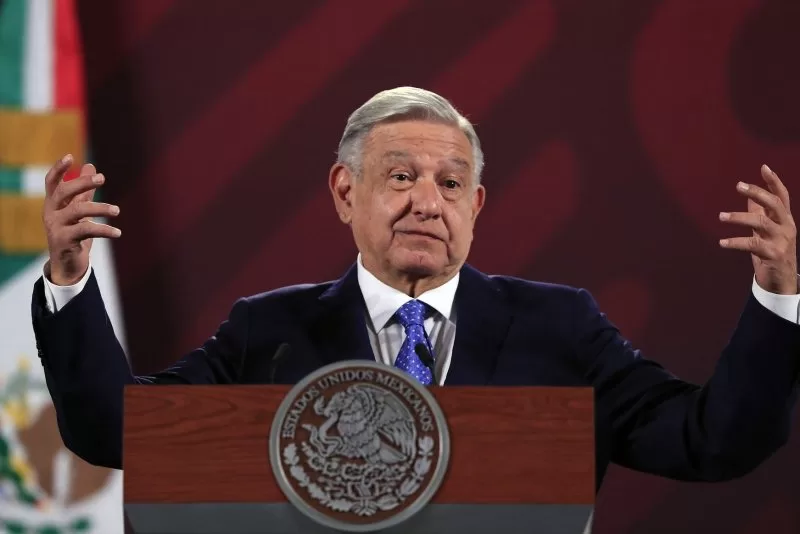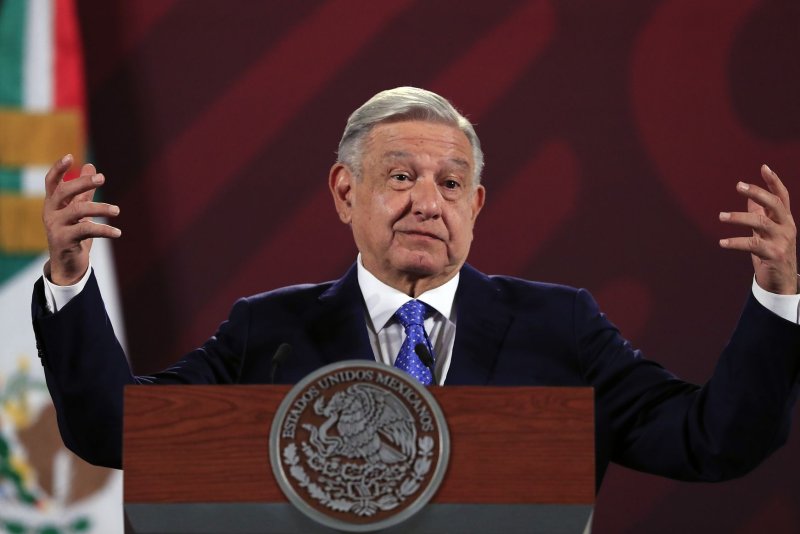Mexico President Andres Manuel Lopez Obrador on Saturday suspended diplomatic relations with Ecuador following a police raid on his country’s embassy in Quito to arrest former Ecuadorian Vice President Jorge Glas. File Photo by Mario Guzman/EPA-EFE
April 6 (UPI) — Mexican President Andrés Manuel López Obrador on Saturday announced the suspension of diplomatic relations with Ecuador after Ecuadorian police stormed Mexico’s embassy in Quito Friday night.
The raid ended with the arrest of Ecuador’s former vice president, Jorge Glas, who had sought shelter at the embassy as he was being being sought on corruption charges.
Mexico granted asylum status to Glas hours before the raid occurred.
“Ecuador is a sovereign nation and we are not going to allow any criminal to stay free,” Ecuadorian President Daniel Noboa said in a prepared statement.
Obrador, however, called the raid a “flagrant violation of international law and the sovereignty of Mexico” while announcing the suspension of diplomatic relations with Ecuador because of the embassy raid.
“Police from Ecuador forcibly entered our embassy and detained the former vice president of that country who was a refugee and processing asylum due to the persecution of harassment he faces,” Obrador said in a translated post on X.
Ecuadorian police entered the Mexican embassy’s compound using armored cars and bolt cutters, the Spanish newspaper El Pais reported. The police removed Glas and took him away in black van with tinted windows.
The raid caused injuries to several diplomats, Mexican Secretary of Foreign Relations Alicia Barcena told the BBC.
Glas was Ecuador’s vice president from 2013 to 2017 but was expelled due to corruption charges. He was convicted of corruption related to Brazilian construction firm Odebrecht and sentenced to six years in prison.
Barcena said the right to asylum is “sacred” and asked all of Mexico’s diplomatic personnel to leave Ecuador.
Mexican officials said they will take the matter to the International Court of Justice, saying the 1961 Vienna Convention on Diplomatic Relations established the territorial and national sovereignty of embassies.
Article 22 of the Convention says the “premises of the [embassy] shall be inviolable” and “the agents of the receiving state may not enter them, except with the consent of the head of the [embassy].”
Ecuador is the “receiving state,” while Mexico is a “sending state” in the matter as defined by the Vienna Convention, the officials said.

